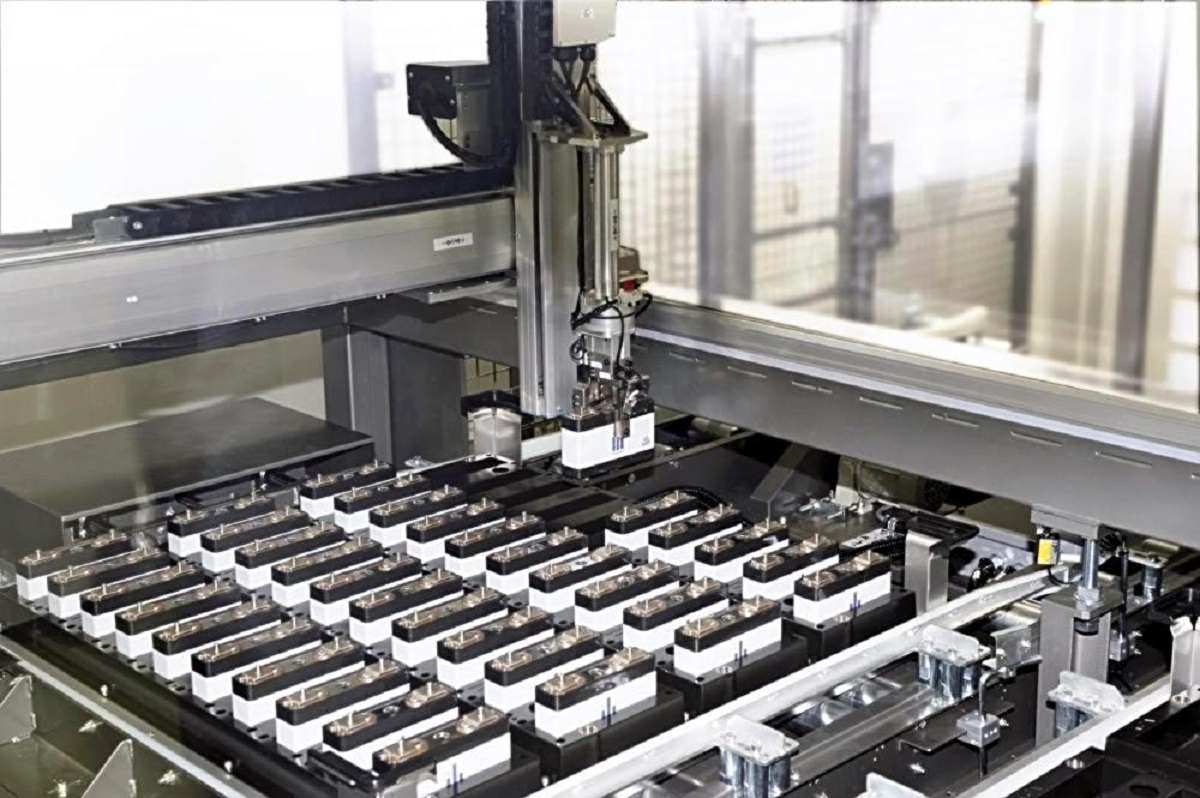
Eliiy Power Co. has grown rapidly in the production of large-size lithium-ion batteries needed for the spread of renewable energy.
12:49 JST, February 23, 2021
The government is ramping up support for new start-ups to help foster next-generation technological innovation in areas such as decarbonization and digitization. Part of the plan includes making high-level positions at start-ups easier to find for those with specialized skills who are interested in joining new ventures, but hesitate to give up their jobs at the nation’s major established corporations.
Start-ups
A start-up’s strength often stems from technical ideas unique to its founders. But they often find it difficult to recruit finance and manufacturing specialists because start-ups are often relatively unknown to the workforce at large.
A growing number of people working in large corporations are becoming more and more attracted to finding new positions at start-ups, but because of a lack of employment information, they often don’t know how to make the leap.
To help young companies find the talent they need, the government plans to subsidize the creation of “human resource banks.” Such databases will be compiled by recruitment agencies, investment companies, universities and others to give start-ups access to a more centralized pool of in-demand workers with specialized skills.
Examples of cases in which personnel have moved from positions at major corporations to work as chief financial officers and chief technology officers at start-ups include Money Forward, Inc., a household accounting app provider, and SkyDrive Inc., which develops and manufactures flying cars. The government hopes that such cases will increase in the future.
The government is also attempting to elicit cooperation from experts such as lawyers and computer programmers.
Such experts who work for, but are not directly employed by, start-ups that meet certain criteria might be offered benefits such as the right to purchase shares at predetermined prices (stock options) that come with tax breaks. Such strategies are aimed at increasing the benefits for non-direct employees involved in the management of start-ups.
Entrepreneurship with less risk
International comparisons show that start-ups in Japan are few and far between. In Japan, traditional large corporations play a central role in the economy. One exception is Eliiy Power Co., a manufacturer of large-size lithium-ion batteries founded in 2006, that has rapidly grown to become an industry leader. But according to U.S. research firm CB Insights, the United States has more than 200 unlisted unicorn companies — meaning start-ups valued at more than $1 billion (around ¥100 billion) each — and there are more than 100 unicorns in China. But in Japan, the number stands at four.
In order to boost that number, the government will offer subsidies of up to ¥5 million to employees of large companies who, without quitting their company jobs, launch start-ups of their own. That way, those who start ventures that end up failing can fall back on their original positions. The government hopes that reducing risk will encourage more entrepreneurs to step up.
Under the plan, start-ups by foreigners are also being encouraged. In the past, starting a business in Japan as a foreigner required a business manager visa with strict conditions. The government has relaxed those conditions and allowed foreign residents who start a business to stay in Japan for up to one year.
In the third supplementary budget for fiscal 2020, the government established a fund of ¥2 trillion for purposes such as developing decarbonization-related technologies. The government will actively allocate money from the fund to support start-ups dealing with related technologies.
Top Articles in Politics
-

Japan PM Takaichi’s Cabinet Resigns en Masse
-

Sanae Takaichi Elected Prime Minister of Japan; Keeps All Cabinet Appointees from Previous Term
-

Japan’s Govt to Submit Road Map for Growth Strategy in March, PM Takaichi to Announce in Upcoming Policy Speech
-

LDP Wins Historic Landslide Victory
-

LDP Wins Landslide Victory, Secures Single-party Majority; Ruling Coalition with JIP Poised to Secure Over 300 seats (UPDATE 1)
JN ACCESS RANKING
-

Japan PM Takaichi’s Cabinet Resigns en Masse
-

Japan Institute to Use Domestic Commercial Optical Lattice Clock to Set Japan Standard Time
-

Israeli Ambassador to Japan Speaks about Japan’s Role in the Reconstruction of Gaza
-

Man Infected with Measles Reportedly Dined at Restaurant in Tokyo Station
-

Videos Plagiarized, Reposted with False Subtitles Claiming ‘Ryukyu Belongs to China’; Anti-China False Information Also Posted in Japan
























